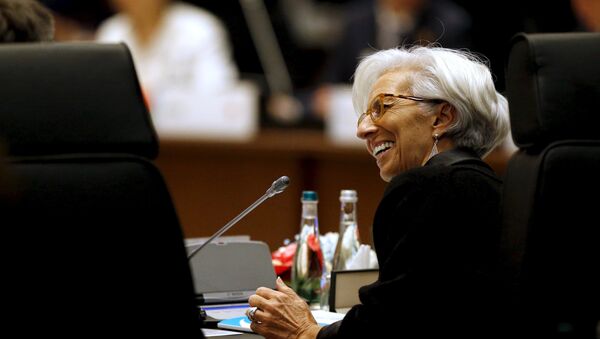WASHINGTON (Sputnik) — On December 8, the IMF Board of Directors voted to reform its lending policies, allowing countries to continue borrowing money even if they default on bilateral obligations to official creditors. The reform allows the IMF to continue Ukraine's $40 billion bailout program even after a potential default by Kiev on its $3 billion Eurobond debt to Russia.
"The United States and other major creditor countries did not favor this early on," Peterson Institute for International Economics Senior Fellow Anna Gelpern told Sputnik about the IMF debt policy change. "They had to be brought on board."
The modifications implemented by the IMF could have been an effort to help Ukraine, but ended up as a much more comprehensive and balanced decision, she added.
"The result still gives official creditors as a group a lot of leverage and more power than private creditors as a group vis-a-vis the IMF," Gelpern observed.
The new rules, Gelpern continued, prevent a single official creditor that does not provide the majority of financing to hold a program, including other creditors, "hostage."
University of British Columbia Sauder School of Business Professor Maurice Levi told Sputnik the IMF policy change could dry up capital markets because non-repayment of debt reduces incentives to lend.
This is harmful to countries dependent on debt, including Russia, Levi claimed, and it could come back to haunt debtors like Ukraine as well.
“We call this ‘moral hazard’,” Levi said. “The entity that avoids re-payment is the only beneficiary, but even they pay a price in the future from reduced access to the global capital market.”
On Thursday, the IMF promised to review its decision to provide loans to defaulting debtors again in two or three years.


